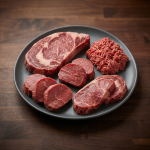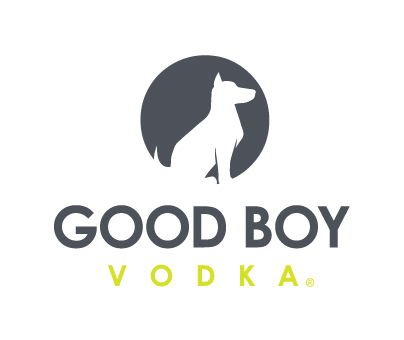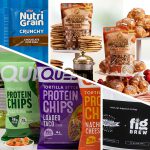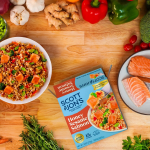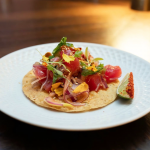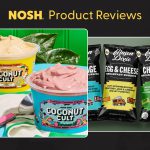Report: Transparency, Convenience Among Trends Impacting Global Food and Beverage Growth
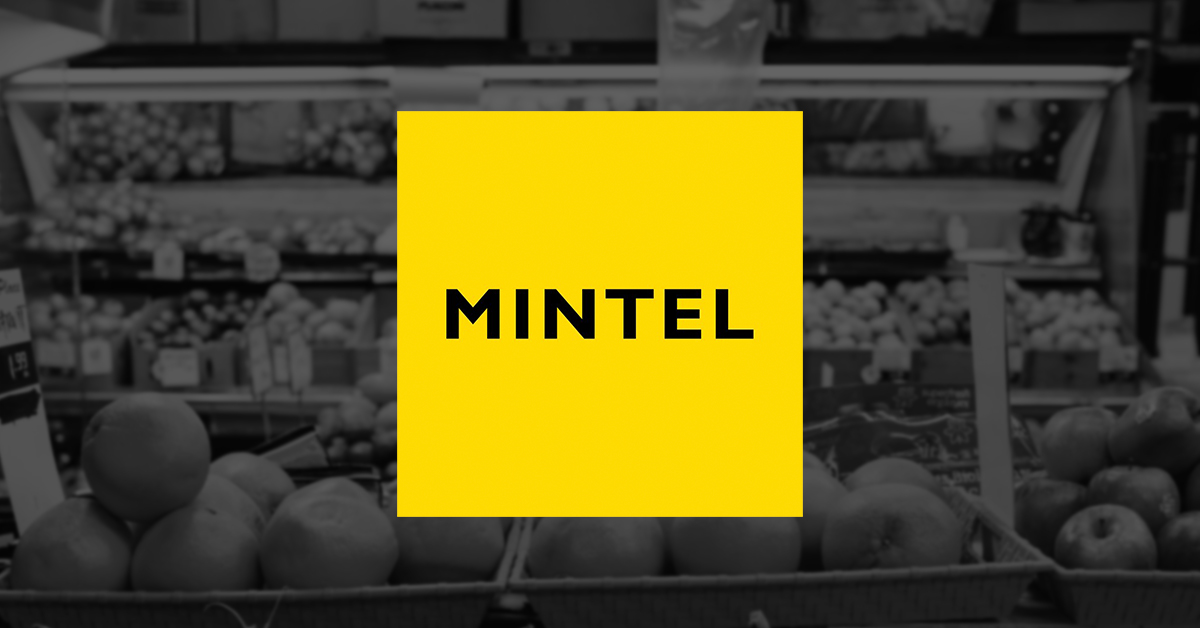
As the headwinds plaguing the food and beverage industry continue to ease, global market intelligence agency Mintel is tracking the major trends expected to drive growth in 2024, including transparency over ultra-processed foods, the redefining of healthy aging and the utilization of technological advancements to improve convenience.
During a webinar on Tuesday, Jenny Zegler, director of food and beverage at Mintel, shared how these global trends will shape North America’s consumption habits over the next year.
Helping Consumers Make Decisions About Processed Foods
Since the onset of the pandemic, consumers have been paying greater attention to what they are eating and drinking. This heightened awareness, paired with trending weight loss drugs like Ozempic and Wegovy, has resulted in a need for clear communication helping shoppers make more informed decisions about if and how processed and ultra-processed foods fit into their diet.
According to Mintel, 34% of surveyed consumers reported that highly processed food is a major concern. The goal for food and beverage brands is not to attempt to sway consumers one way or the other, but rather to be transparent about their own products’ processing.
“This is up to consumers to make their own decisions about what fits into their diets and why [although] we do see an opportunity for some categories to consider better-for-you or less processed versions of some of those ultra-processed food favorites like prepared meals,” said Zegler during the webinar.
One brand seeking to set the standard for transparency is plant-based nutrition drink maker Huel. Earlier this year, the brand’s nutrition team sent out an email to educate subscribers about the difference between processed and ultra-processed foods.
Within the next 12 months, Mintel predicts more consumers will become aware of the different levels of processing from media reports, regulations and voluntary additions of processing levels such as NOVA or Siga ratings on packaging. Brands will be given an opportunity to focus on the positives of food processing techniques, such as enhancing nutrition, inhibiting contaminant formation or improving sustainability.
Redefining Healthy Aging
Generation X (consumers born between 1965 and 1979) is spearheading a new approach to healthy aging that includes products designed to help them thrive in their diverse lifestyles now and for decades to come, per Mintel.
As consumers aged 40 and over account for the most significant share of food and drink spending in many markets globally, brands cannot ignore this often-overlooked demographic. To meet the health needs of this age group, Mintel suggests food and beverage brands make products featuring functional formulations that support physical or emotional health, or both.
For example, U.S. beverage brand Elements of Balance’s plant-based sleep drink is formulated with clinically effective levels of adaptogens – including passionflower – for sleep. Passionflower is believed to help reduce sleep latency while increasing sleep duration. However, according to Zegler, health-forward products will likely appeal to a wide range of age groups.
“I want to emphasize that the opportunity with this trend is not just with Gen X, this is something that is going to be a trend for all future generations,” she said during the webinar. “This really is inspired by the fact that consumers, especially Gen Z adults, and millennials, already prioritize their health.”
Ushering in a New Era of Convenience
Though convenience has nearly always been an evolving subject, the pandemic accelerated consumers’ desire to find shortcuts to quality food and drink experiences in their day-to-day lives, said Zegler. In the near future, AI, AR and other technology tools are slated to become “nonnegotiable” timesavers in the kitchen.
For retailers, developments are expected to come in the form of real-time shopping assistance such as push notifications, personalized alerts or AI that could help shoppers find ingredients or products while in store, in transit or shopping online. In a Mintel survey, 43% of U.S. consumers said they are interested in shopping in virtual reality storefronts.
“In the next few years, as AI hardware becomes more sophisticated and less expensive, a key function of food and drink brands will be to guide users through day-to-day activities such as cooking,” said Ayisha Koyenikan, associate director of Mintel Food & Drink, in the report.
“There [is] a question of if technology will change how Gen Z will cook and I definitely see this as something that is going to happen because Gen Z is so tech-savvy and this is going to offer them all new areas of convenience,” echoed Zegler.
Brands themselves are also capitalizing on advancements in technology. Earlier this year, The Coca-Cola Company announced the launch of its Y3000 Zero Sugar beverage, a limited edition flavor co-created with human and artificial intelligence from the company.


